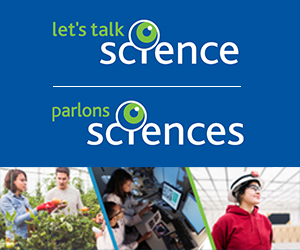In recent years, Canadian colleges have increasingly recognized the importance of creating inclusive, respectful, and culturally responsive educational environments for Indigenous learners. These efforts are not only in response to the Truth and Reconciliation Commission of Canada’s Calls to Action but are also a reflection of the country’s growing commitment to equity, decolonization, and Indigenous self-determination in education.
Colleges across Canada now offer a wide range of unique services and programs specifically designed to support First Nations, Métis, and Inuit students in their academic, cultural, and personal journeys. These initiatives aim to create a safe, supportive, and empowering space for Indigenous learners while integrating Indigenous knowledge systems and worldviews into the mainstream educational experience.
Indigenous Student Services and Support Centres
Nearly all Canadian colleges now host Indigenous student support centres, also known as Indigenous resource centres, friendship centres, or Indigenous student hubs. These spaces offer culturally grounded support services that go far beyond traditional academic advising.
Key features of these centres may include (but are not limited to):
- Culturally Safe Spaces: These centres provide a welcoming and safe environment where Indigenous students can study, relax, and connect with others who share similar backgrounds and experiences.
- Indigenous Advisors and Elders: Many colleges employ Indigenous student advisors and Elders-in-Residence who offer guidance, cultural support, and mentorship.
- Holistic Support Services: These include mental health support, career counselling, wellness programs, and traditional healing practices such as smudging and sharing circles.
- Transition Programs: Some institutions offer Indigenous-focused orientation or transition programs to help new students adjust to college life while staying connected to their identity and traditions.
Indigenous-Specific Academic Programs
A growing number of academic programs either exclusively for Indigenous students or developed with a strong Indigenous focus, are offered at colleges across the country. These programs often integrate Indigenous knowledge, languages, traditions, and perspectives, and are sometimes developed in collaboration with local Indigenous communities.
Following are examples of the type of Indigenous-specific, academic programs available:
- Indigenous Studies and Indigenous Governance: These programs explore history, politics, law, and culture from Indigenous perspectives.
- Language Revitalization Programs: Some colleges offer courses and diplomas in Indigenous languages like Cree, Ojibwe, and Inuktitut, contributing to language preservation and revitalization.
- Land-Based Education: Programs that use the land as a classroom to teach Indigenous ways of knowing, traditional ecological knowledge, and sustainable practices.
- Trades and Vocational Training: Tailored programs in carpentry, natural resources, and environmental technology designed with cultural relevance and community needs in mind.
Indigenous Access and Bridging Programs
To support Indigenous learners who may not meet standard admission requirements due to systemic barriers, many colleges offer access or bridging programs. These programs help prepare students for post-secondary studies while building their confidence and skills in a culturally supportive environment. Elements that may be included into this category of programs offered are:
- Academic upgrading in math, English, and science
- Indigenous content integration into curriculum
- Life skills and wellness workshops
- Personalized learning plans and mentorship
These programs serve as a critical stepping stone, especially for adult learners or those coming from remote communities with limited access to educational resources.
Community-Based and Distance Learning Programs
Recognizing the geographic barriers many Indigenous students face, especially in northern and remote communities, Canadian colleges will often partner with Indigenous communities to deliver programs on-site or online through:
- Community-Based Delivery: Colleges may send instructors into Indigenous communities to deliver courses and training locally.
- Flexible Learning Options: Online or blended courses allow students to remain in their communities while accessing college education.
- Mobile Training Units: Some colleges operate mobile classrooms (trailers outfitted with labs and equipment) to bring trades and technical training to remote regions.
These models reduce relocation costs and increase access to education in underserved areas, helping to meet local workforce and development needs.
Indigenous Cultural Programming
Celebrating Indigenous cultures and traditions is a central part of the Indigenous student experience in Canadian colleges. Cultural programming helps foster a sense of belonging and identity, while educating non-Indigenous students and staff.
Cultural activities such as seasonal feasts and powwows, traditional teachings and storytelling events, drumming, singing, and dancing workshops, beading, quillwork, and other crafts as well Cultural awareness days and land acknowledgments are becoming increasingly more available.
The programs are often led by Elders, Knowledge Keepers, or local Indigenous artists and are typically open to the entire campus community.
Financial Supports and Scholarships
To address economic barriers, many Canadian colleges offer financial supports specifically for Indigenous learners. This includes:
- Dedicated scholarships and bursaries for First Nations, Métis, and Inuit students
- Band-sponsored education funding coordination and advocacy
- Emergency financial assistance
- Support navigating Indigenous Services Canada (ISC) or Métis Nation funding
Financial aid offices in colleges often have designated staff who help Indigenous students apply for funding and manage budgets.
Reconciliation and Institutional Commitments
Beyond specific programs, many colleges have taken steps to embed reconciliation and Indigenization at an institutional level. More recently, the Indigenization of Curriculum incorporates Indigenous content and perspectives across all subject areas, not just Indigenous-specific programs.
Providing staff and faculty with training on cultural safety, anti-racism, and Indigenous history, are some of the measures being taken to facilitate Anti-Racism Training and Allyship.
Some colleges have implemented Indigenous Strategic Plans and have developed Indigenous education or reconciliation strategies in collaboration with Indigenous communities.
As a way of ensuring representation and support at all levels, employing Indigenous faculty and staff has become a hiring practice. As added support, some colleges have Indigenous advisory councils made up of community members who help guide institutional decision-making on Indigenous education and engagement.
Partnerships with Indigenous Communities and Organizations
Colleges across Canada frequently work in a close partnership with Indigenous communities, tribal councils, friendship centres, and organizations like the Assembly of First Nations for example. These partnerships inform program development, ensure cultural relevance, and create pathways for Indigenous learners to transition from community-based education to formal college programs.
Canadian colleges are playing a vital role in advancing Indigenous education and reconciliation. By offering culturally responsive services, creating inclusive learning environments, and partnering meaningfully with Indigenous communities, they are helping Indigenous learners thrive academically and personally.
These efforts not only benefit Indigenous students but also enrich the broader college community by promoting intercultural understanding and respect. As colleges continue to evolve, the integration of Indigenous worldviews and the empowerment of Indigenous voices will remain essential to creating a truly equitable and just educational landscape in Canada.
By: Lindsay Taylor





